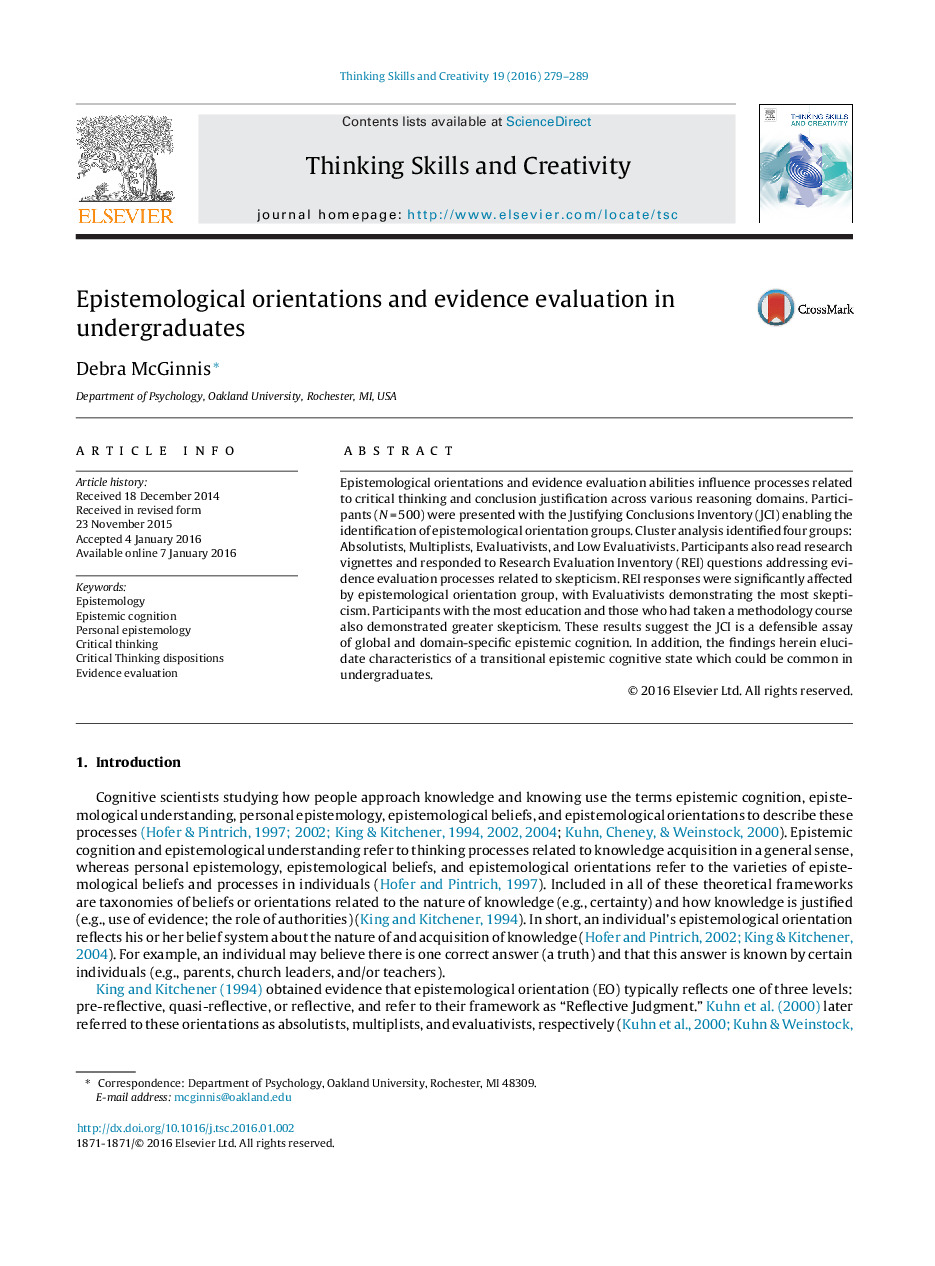| کد مقاله | کد نشریه | سال انتشار | مقاله انگلیسی | نسخه تمام متن |
|---|---|---|---|---|
| 375591 | 622805 | 2016 | 11 صفحه PDF | دانلود رایگان |
• New measure of epistemological orientations (Justifying Conclusions Inventory, JCI).
• JCI provides scores for absolutism, multiplism, and evaluatism.
• Evidence that about one third of undergraduates may be in transition.
• Justifying Conclusions Inventory can be used globally or specifically.
Epistemological orientations and evidence evaluation abilities influence processes related to critical thinking and conclusion justification across various reasoning domains. Participants (N = 500) were presented with the Justifying Conclusions Inventory (JCI) enabling the identification of epistemological orientation groups. Cluster analysis identified four groups: Absolutists, Multiplists, Evaluativists, and Low Evaluativists. Participants also read research vignettes and responded to Research Evaluation Inventory (REI) questions addressing evidence evaluation processes related to skepticism. REI responses were significantly affected by epistemological orientation group, with Evaluativists demonstrating the most skepticism. Participants with the most education and those who had taken a methodology course also demonstrated greater skepticism. These results suggest the JCI is a defensible assay of global and domain-specific epistemic cognition. In addition, the findings herein elucidate characteristics of a transitional epistemic cognitive state which could be common in undergraduates.
Journal: Thinking Skills and Creativity - Volume 19, March 2016, Pages 279–289
